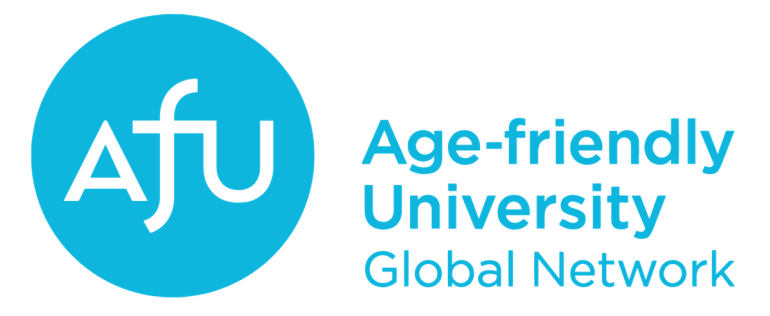
Wayne State University has been named a member of the Age-Friendly University Global Network, an innovative consortium of universities dedicated to promoting equity, inclusion and opportunity for older adults. A strategic focus of the university is diversity, equity and inclusion. The AFU designation confirms that “age” is an important dimension of that strategy.
 The AFU Global Network started in 2012 at Dublin City University, Ireland, and now includes nearly 100 universities guided by 10 overarching principles. These principles ask universities to fight ageism and to ensure older adults feel welcomed on their campus. This includes encouraging older adults to attend campus programs and classes, to participate in and help guide research, to develop late-life and post-retirement careers, and to use health and wellness resources. WSU is Michigan’s third university to receive the designation after Michigan State and Eastern Michigan universities.
The AFU Global Network started in 2012 at Dublin City University, Ireland, and now includes nearly 100 universities guided by 10 overarching principles. These principles ask universities to fight ageism and to ensure older adults feel welcomed on their campus. This includes encouraging older adults to attend campus programs and classes, to participate in and help guide research, to develop late-life and post-retirement careers, and to use health and wellness resources. WSU is Michigan’s third university to receive the designation after Michigan State and Eastern Michigan universities.
Peter Lichtenberg, Ph.D., director of Wayne State’s Institute of Gerontology, led the effort to bring the university into the network. “I felt we had good alignment between the AFU principles and many current WSU practices,” he said. “This solidifies our mission to promote an inclusive approach to older adults through all stages.”
To prepare for the designation, Lichtenberg formed a university steering committee representing 18 units across campus to delineate current age-friendly practices and goals for improvement. The committee garnered the support of the provost, the vice president for research, and the Council of Deans, ultimately culminating in Wayne State University President M. Roy Wilson’s written endorsement of the designation.
“The benefits to WSU are wide-ranging,” President Wilson said. “Attaining age-friendly status generates much energy around older adult issues, and it invigorates the way we teach and connect. It also provides a structure for us to focus on visionary goals like reducing ageism and increasing intergenerational experiences.” While endorsing the mission of the AFU and its principles, WSU also pledges to conduct an annual inventory of its age-friendly practices to quantify its commitment while strengthening areas of need.
The United States is in an unprecedented demographic shift that is changing the age profile of the country upward. Within four years in Southeast Michigan, the total number of older adults will exceed the number of children, an event destined to recur across the state and the country. This shift, while monumental, also ushers in opportunities to engage older adults across WSU’s campus, where several supportive programs are already in place. WSU offers a 75% tuition reduction to students 60 or older and sponsors the Society of Active Retirees, a 1,200-member lifelong learning community. Its volunteer force includes 300 persons 50 and up, and more than half of its faculty and 40% of staff are 50 or older. WSU also has an extensive research portfolio on aging, having received $54 million in funding for aging issues since 2015.
“We start from a position of strength in our adoption of the AFU principles,” said Provost and Senior Vice President for Academic Affairs Mark Kornbluh. “And we pledge to grow from there. This designation is an honor and a call to action to continuously assess our treatment of the older adult community and to deepen our engagement with aging issues.”
